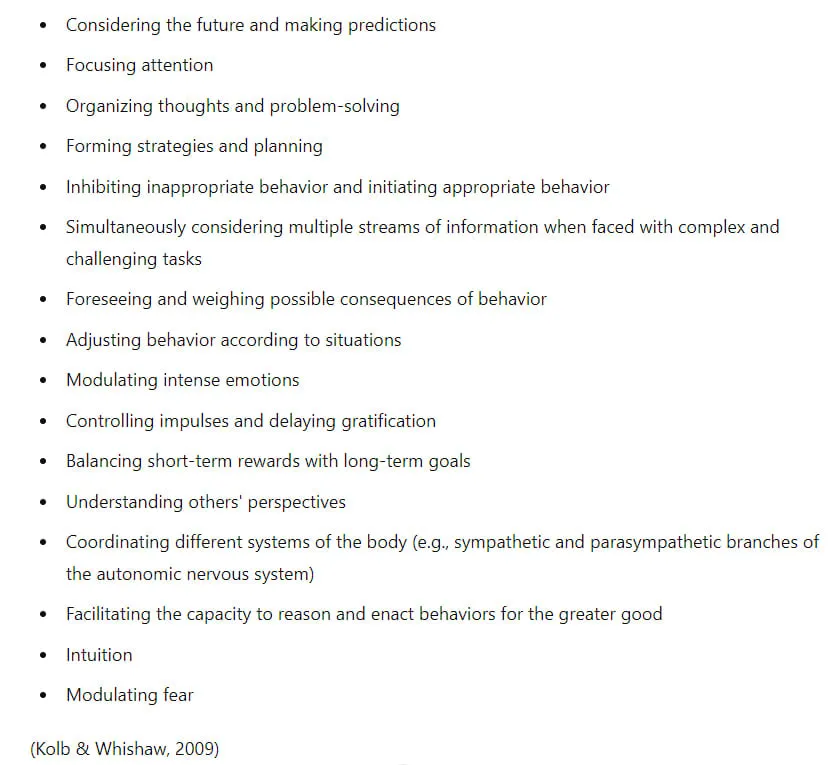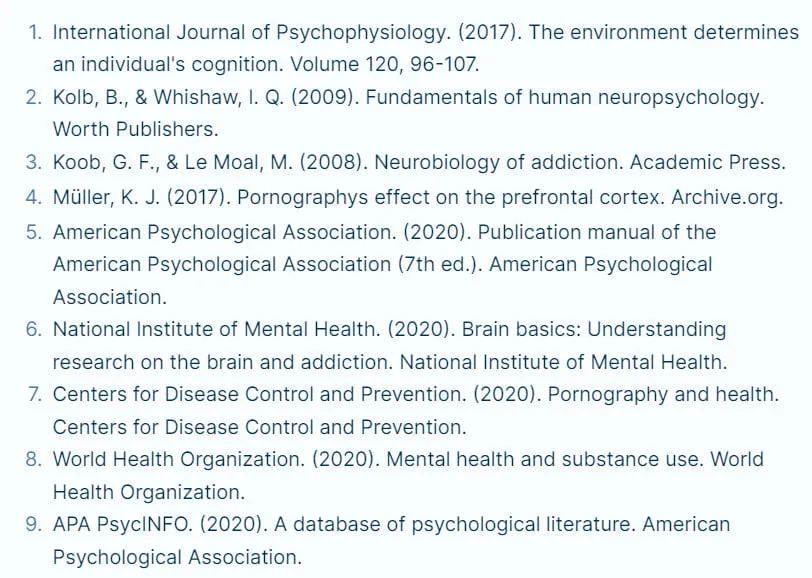The impact of pornography on the human mind has been a topic of increasing concern in recent years. This dissertation explores the effects of pornography on the human brain, focusing on how it wires the brain and impacts cognitive function. The research discusses the scientific literature on the topic, including the effects of pornography on an individual's behavior, brain structure, and cognitive function. According to the Int. Journal of Psychophysiology (Vol. 120, Oct. 2017, Pg 96–107), the environment significantly influences an individual's cognitive functions, encompassing attention span, memory, judgment, reasoning, problem-solving, comprehension, and perception. The study examines various environmental factors that contribute to cognitive development, including culture, dress code, music, religion, landscape, architecture, and radio waves.

The prefrontal cortex, often mistaken for the third eye, has the following functions (Kolb & Whishaw, 2009):

Scientific research has demonstrated that exposure to pornography has detrimental effects on the brain, particularly in the prefrontal cortex (Müller, 2017). The brain gradually becomes dependent on abnormal levels of dopamine, associating pornography as the primary source, as no other activity induces such drastic spikes. After the stimulation ceases, the gray matter decreases due to overstimulation, resulting in the loss of neurons and synapses and impairing the entire frontal cortex. Pornography stimulates the brain's reward mechanism, leading to the production and release of excessive amounts of dopamine, which inundates the limbic system. This overstimulation increases the rate of neuronal firing, resulting in damage to the ventrolateral prefrontal cortex, whose primary function is to inhibit inappropriate and risky behavior.
This neurological damage is a key reason why violence, drug use, and pornography are often interconnected. Once the binge is completed, the prefrontal cortex experiences regret and associates this phase with psychological and physiological stress due to plummeting dopamine levels, marking the onset of the withdrawal phase. This phase is characterized by symptoms such as depression, grief, feelings of unworthiness, and low self-esteem. The individual can escape this suffering only by raising dopamine levels back to previous highs, typically through another session of pornography, thereby perpetuating a vicious cycle.
References:
